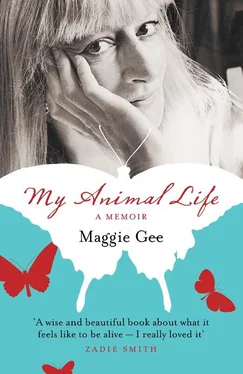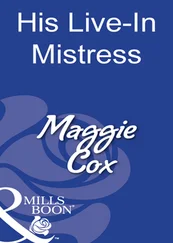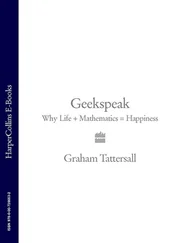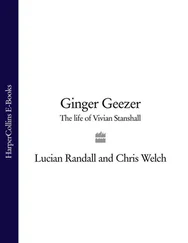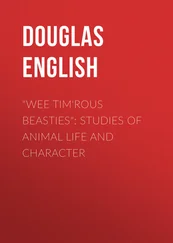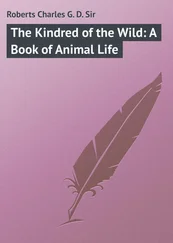It isn’t, though, when I think. His need for her was limitless. Behind Ma’s story were the deaths of the only men in her family, both of them killed before Dad was three (and my father once told me, with tears in his eyes, that Laddie said to Ma he was ‘going off to fight for me’, for the baby who was born just before the war started; Laddie fought, and died; did the legend of his sacrifice leave Dad feeling guilty?). How much grief and mourning was there in my father’s early years, how much terror between the deaths of the first young uncle and the second? How did Ma, in her sorrow, manage to look after her sensitive son, ‘Grandma Gee’s Fairy?’
Maybe that was why she wanted him to be a girl: so he wouldn’t have to go off and be killed, like her brothers.
It all left my father with a horror of death and funerals. Children must be protected from death: ‘Never look back’ was his watchword; we didn’t attend our grandparents’ funerals, nor the uncles’ and aunts’. I realise now that the first family funeral I ever attended was my own father’s. By then I was in my forties. Being dead, Dad couldn’t stop me going. He would never consider insuring his life, refused to take anything from the house when his parents died except one photograph of Aunt Ede ‘for Margaret’, and was so averse to contemplating his own death that his pension stopped with him, leaving my mother, in the end, with no income. There had been a lifetime of relative comfort for which she always thanked him, and made us be thankful too, saying, ‘Your dad is a good provider,’ because she remembered, from childhood, real poverty, and loved, in the 1980s, getting cash from the wall. But because of Dad’s phobia about death, in 1992 she was left with almost nothing.
Not for long. She had cared for him tenderly, if not ungrudgingly, maybe as his grieving mother never could, over the last five years when he was blind and had Parkinson’s disease. Life gave him a second chance at being helpless and receiving love, fulfilling the infant need that was thwarted by the precipitate arrival of his brother. Till death us do part: he needed, and Mum supplied.
No one is fixed and nothing is forever. One day, when I had a family of my own, as my father and I walked up the garden path, single file, Dad going ahead, he was nearly at the door and he said ‘Sorry’ to me. ‘Sorry for the things I did wrong. Whatever I did wrong. When you were younger. I know I did.’ I was taken by surprise, and mortified later that all I managed was instinctively to comfort him, as my mother had shown me men should be comforted: ‘Never mind, Dad, it’s all right.’
Which was not, perhaps, enough; I was genuinely grateful, but part of me felt ambushed, as if I should at least have had a chance to say, ‘Yes, you did wrong.’ But now I see that his apology was difficult, and brave. And that all those family wars were just something he could not avoid. Raging did not make him happier, though it made us less happy; my father could do no other. He struck out when words weren’t sufficient to express the hurt or injustice he felt, the outraged unfairness; why didn’t we love him enough, why didn’t we support him, why did we undermine and defy him ?
With a different wife, not a seventh of a seventh of a seventh with her damaged sense of self coming down through three generations, with a woman who stood up to him openly, rather than deferring, as Mum did, until she had no more ground to concede, all the while subverting his children with her charm and sweetness, and isolating him — could Dad have been different? Maybe. As it was, Victor couldn’t win.
Scissors, paper, stone: that elemental children’s game. The Gees were scissors who cut through things, and obdurate stone which resisted. The charming Churches were paper, having the last word in secret, enfolding and circumventing, camouflaging, wrapping things up for a party, making life fun.
And in later life, when the two elder children had gone, when the mortgage was paid off and the head teacher’s inflation-linked pension finally arrived and made their life comfortable, Aileen solved the great puzzle of clothes, those coded rags that claim status or artistry or beauty, saying ‘I am here, look at me.’ For herself, she bought layers of gypsy-like colour that made her look not unlike my dark-haired, long-tressed great-grandmother Zillah Meakins, reds and purples, waistcoats and scarves, and grew her hair, still thick and wavy in her seventies, down to her shoulders. For her children and grandchildren, by a sudden miraculous sleight of hand, she also provided clothes, doing in old age what she couldn’t manage as a young mother. She started knitting, with flamboyance, imagination, and steadily increasing skill, Ziggy Stardust tank-tops of her own design for myself and my younger brother, mixing black with silver and gold and crimson. One extravagant top, a kind of evening waistcoat, gold-buttoned, she dreamed up entirely from gleaming metallic thread, with elaborate Fair Isle patterns on the front woven from silver and gold, a pale shining wisp that clung lightly to my waist and breasts, like nothing else, un-sensible, fabulously sinuous, charm itself. As if all those years there had been orchids of gilded sartorial sensuousness rooting themselves in the dark deep down in Mum’s psyche, waiting only for the sunlight of money and time to break free. I wore that shimmering garment to parties for years, and now it belongs to my twenty-two-year-old daughter, Rosa, who wears, unmistakably, also, the witty, rebellious, unputdownable, charming smile of the Churches; tells jokes and does imitations like a Church, and, mostly, lets things go.
So which side won?
Alas, neither side won. In struggles between two families, no one can win. I just wish they had learned to get on. After all, the two strains continue now, intertwined. I adored my mother, but my father’s determination and eye for detail hold me in their pinions still, never leaving me alone; holding me up, driving me on.
I am born:
and make my father jealous
I began early, long and white and premature and so sleepy that my parents feared I was ‘not quite right’: did nothing but drink milk. They worked my arms and legs in swimming motions, trying to reassure themselves. My mother Aileen looks thin and dark and fierce in the photographs, for she was not well after I was born, but she clutches me to her, and her eyes are bright. She said that this thirty-third year of her life was her happiest; she loved her son John but now she wanted a daughter.
That morning Mum had walked with my father into Poole, by the sea, to pick up an orange roll of stair-carpet for Tatnam Road, because the in-laws were expected. November 2nd: blowing leaves, squalling seagulls. My parents-to-be marched back through the wind carrying the roll of carpet, taking one end each, her bump sticking out from her thinness, stopping every now and again for John, aged three and a half, to catch up. Tea was cucumber sandwiches, and I arrived in a hurry two hours later. That rush birth was good for my mother but left a little mark on me. One of my only two recurrent dreams is of knowing I have to shoot down a long narrow tunnel to save my life and get into the light, and in the dream I can never do it, there is a half-formed dream thought that death would be better, but in a refusal of death, I wake up. Maybe one day when death becomes physically real I will be brave enough to dream my way through this dark tunnel and find whatever life is at the other end.

I was born in 1948
Читать дальше
